
Music in wedding ritual of Red Dao in Lao Cai province
VOV.VN - For the Red Dao, a ceremonial music band is an important part of happy events such as wedding ceremonies. The cheerful sound of clarinets and drums expresses the joy of the bride, bridegroom, and their guests.

Love in Pieu scarf of Thai women
VOV.VN - The ethnic Black Thai of Vietnam’s northwestern region value the Pieu scarf as a symbol of love and an important clothing accessory for women. All Black Thai women can weave and embroider Pieu scarves.

Traditional clothes of the Nung
VOV.VN - The indigo clothes of the Nung in Cao Bang province are distinguishable from others by their designs, which have very few decorations or embroidery. Nung clothing reflects their culture and customs.

Rock stilt houses of Tay ethnic people in Cao Bang province
VOV.VN - Khuoi Ky village in Trung Khanh district, Cao Bang province, is famous for its stilt houses built of rocks and its tradition of worshipping the Rock God.

Weaving – traditional craft of Tay ethnic minority
VOV.VN - Brocades are typical weaving and sewing products of the Tay people in the northern mountainous province of Cao Bang. They are well-known for their colorful patterns which have been passed from generation to generation. The craft is most active in Phu Ngoc commune, Ha Quang district.
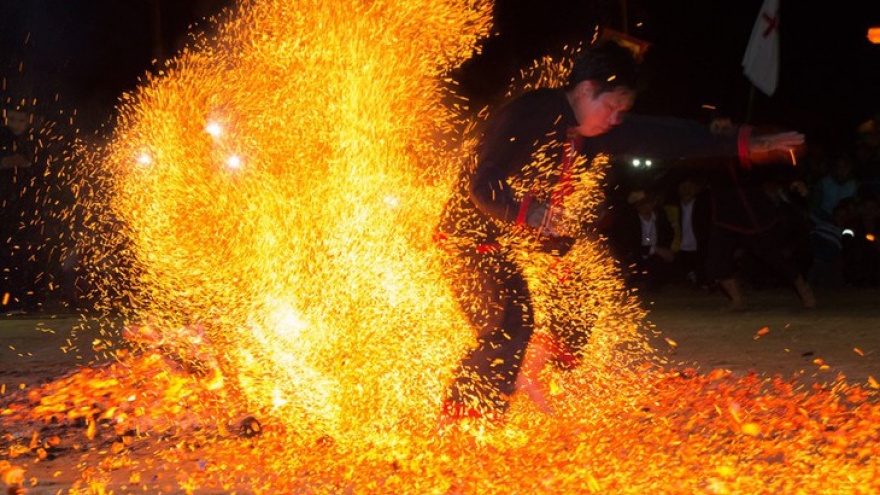
Fire dance of Red Dao in Dien Bien province
VOV.VN - Dien Bien province is home to about 6,000 Dao people of the Red Dao, Dao Quan Chet, and Dao Khau branches. The Dao observe many religious and cultural ceremonies and festivals.

Arieu Ping, the reburial festival of the Pa Ko
VOV.VN - For the Pa Ko ethnic people, taking care of ancestral tombs is not a family’s private affair, but the responsibility of the whole village.

“Ta dieu”, a religious symbol of the Thai
VOV.VN - The Thai in Son La province have many cultural and ritual customs. Planting or hanging Ta dieu is a typical rite which has been handed down from generation to generation.
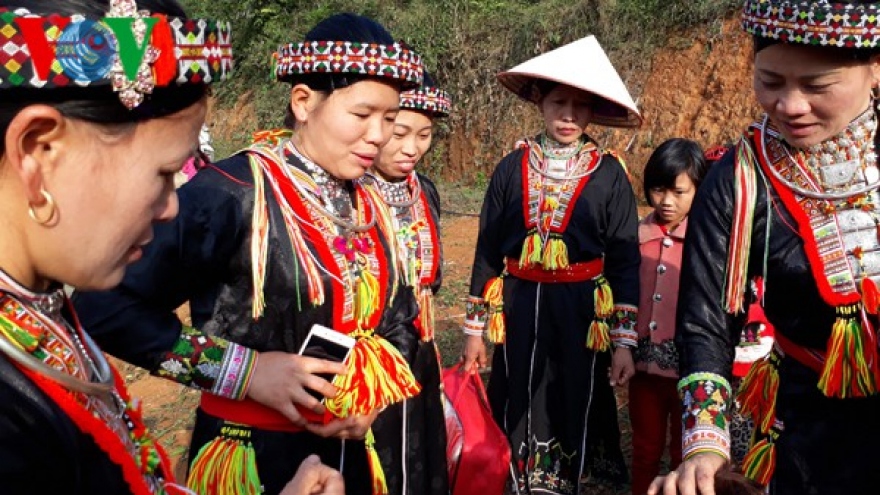
Red Dao observe Day for Thunderbolt Deity
VOV.VN - The Red Dao have many observances throughout the year, such as abstention day after the Forest Worship on the first day of a New Year and Days of the Wind and Thunderbolt Deities.

Xip Xi Festival of the White Thai
VOV.VN - The White Thai ethnic minority celebrate their Xip Xi Festival on the 14th day of the 7th lunar month in the leisure time before the fall harvest.
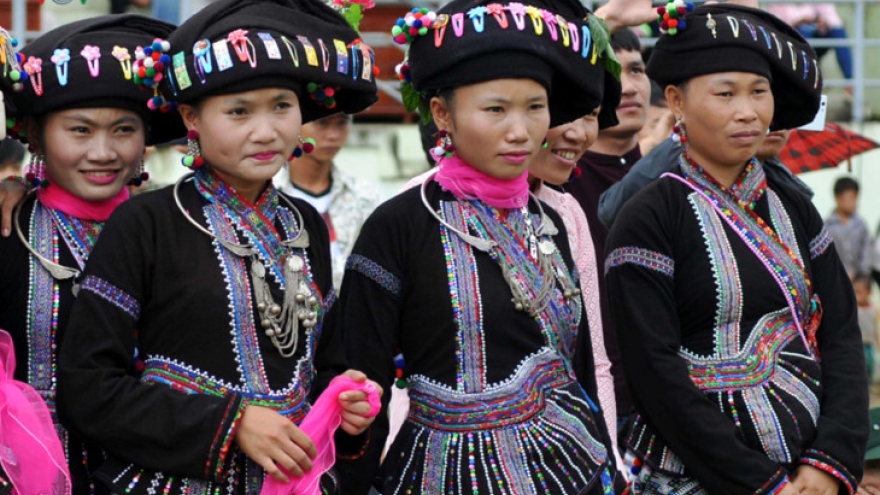
Traditional costumes of the Lu ethnic minority
VOV.VN - The Lu ethnic minority of Lai Chau province have long earned their living by growing cotton, raising silkworms, spinning thread and weaving fabrics.
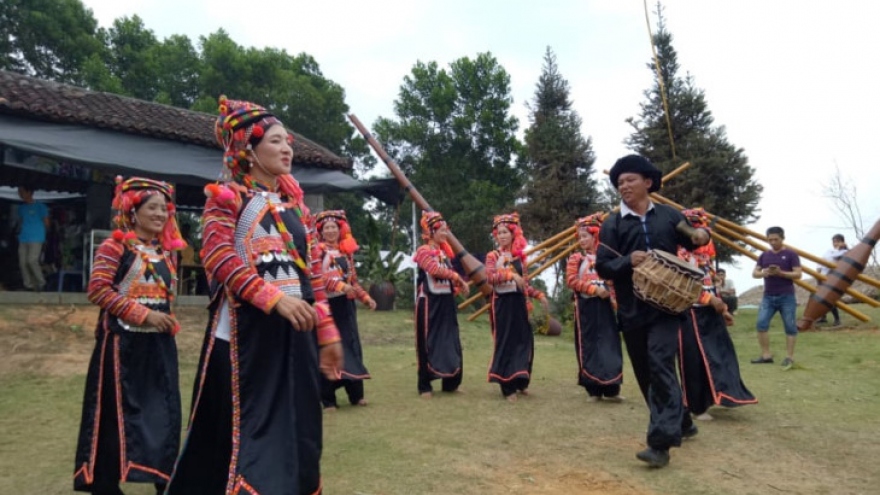
Wedding customs of the Ha Nhi ethnic group
VOV.VN - Expressing one’s love through music, running away to the beloved’s house, and scaling money on the wedding day are some of the unique wedding customs of the Ha Nhi ethnic people in Muong Te district, Lai Chau province.

Stick puppetry of the Tay
VOV.VN - The Tay often stage stick puppetry at their New Year’s celebration and also at the Going to the Field Festival, a custom that has existed for more than 200 years.

Silver in the life of Thai people
VOV.VN - The Thai people living in Vietnam’s northwestern region highly treasure silver. They use and gift silver jewelry and products at important events such as weddings and religious ceremonies.

Indigo clothes of the Tay
VOV.VN - Indigo is a dominant color of clothes of many Vietnamese ethnic groups. The Tay in the northern region say that the tradition of using the indigo plant to dye fabric is derived from a folktale of the faithful love of a young couple.
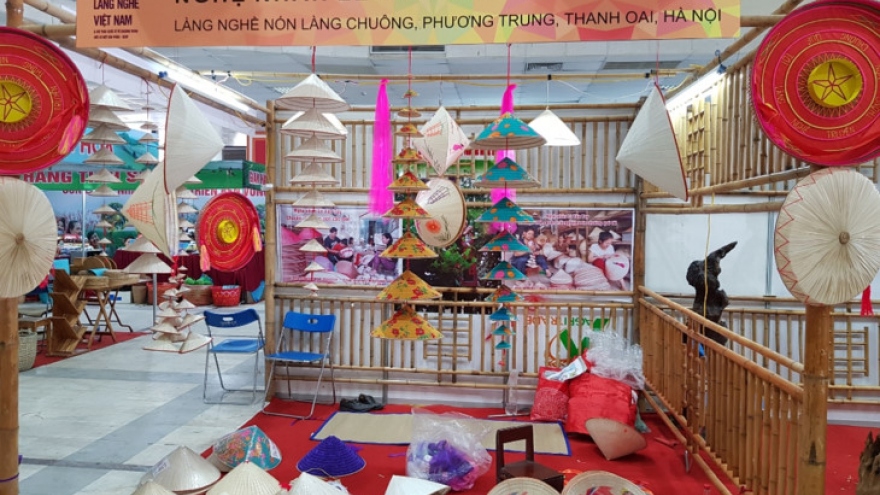
Hanoi, the home of the quintessential craft villages
VOV.VN - Known as the land of traditional crafts, Hanoi has the highest number of craft villages in Vietnam: 1,350, nearly one-third of the total number.
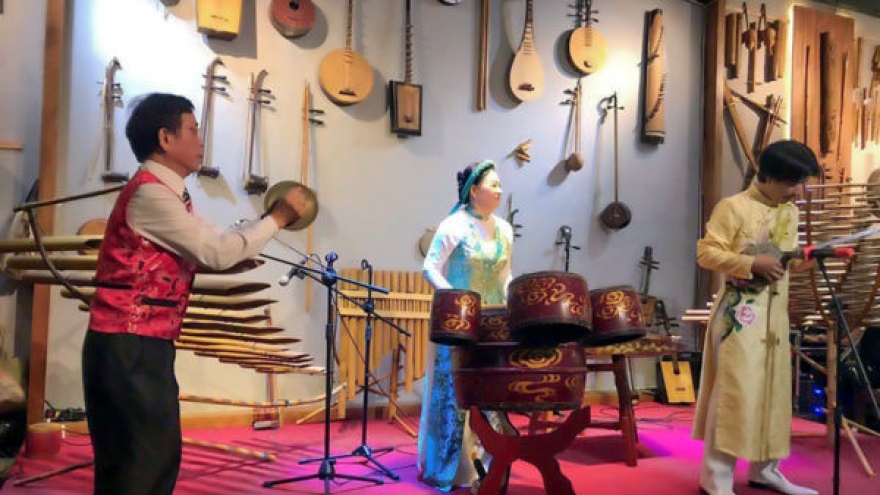
Ba Pho Music House, special space to preserve traditional musical instruments
VOV.VN - The “Ba Pho Music House” is a special space to preserve traditional musical instruments which serves as a tourism destination for visitors to Hanoi and also helps introduce musician Ba Pho, the founder of the troupe, to the public.

The Si La's unique costume
VOV.VN - With a population of about 1,000 people, the Si La are one of the 5 smallest ethnic groups in Vietnam.
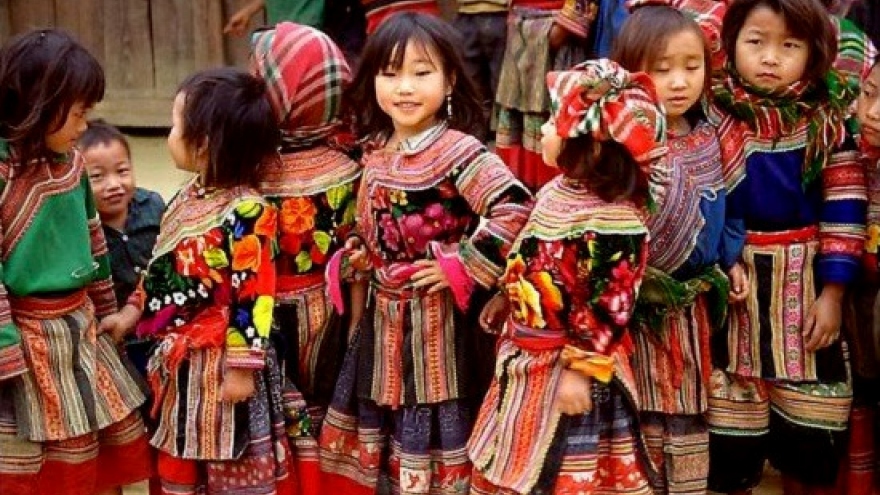
Costumes of Mong women in Ha Giang
VOV.VN - Language, writing, and costumes are important identifications to differentiate Vietnam’s ethnic groups.

Gongs and drums of the Co Tu
VOV.VN - Gongs and drums are the most popular musical instruments of the Co Tu in Tay Giang district, Quang Nam province. They are used in community events.

Mong ethnic people cultivate on rocks
VOV.VN - "Live on rocks and die buried in rocks". That is how people from the Mong Meo Vac ethnic group define their identity. If you ever have the opportunity to visit the Mong villages in Dong Van, Yen Minh, and Quan Ba districts in the northern mountain province of Ha Giang, you will truly understand that quote.

Wood, a treasured symbol of love by Gie Trieng women
VOV.VN - Wood plays an important role in Gie Trieng’s marriage customs and the Et Rok wedding ceremony of the Bahnar.

Che jars in the Ede’s life
VOV.VN - The Ede ethnic minority people in the Central Highlands have developed rich cultural values, which are closely associated with terraced field cultivation.

Ede ethnic people preserve traditional brocade weaving craft
VOV.VN - The Ede ethnic people have long been proud of their brocade weaving and are trying to preserve the traditional craft amid the rapid industrialization, modernization, and fashion changes.

Shoulder bamboo basket of Thai women
VOV.VN - Thai women in Vietnam’s northwest region always wear shoulder bamboo baskets when they work in terraced fields or go to the forest to pick vegetables and fruit.

Hue festival revives traditional craft
VOV.VN - Themed "The quintessence of Vietnamese crafts", Hue Traditional Craft Festival introduced and promoted Vietnam’s traditional handicraft items and specialties.
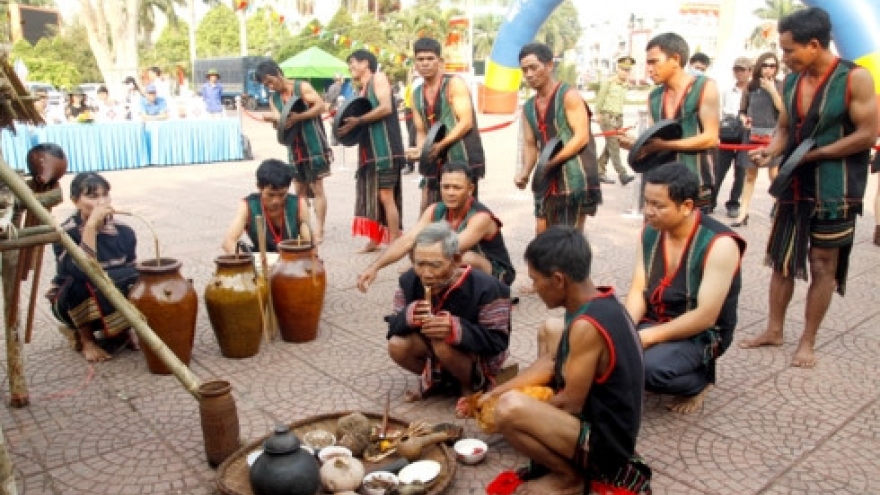
New rice ceremony of the M’nong Gar
VOV.VN - Performing a new rice ceremony is a very old custom among the ethnic groups who live in Vietnam’s Truong Son mountain range in the Central Highlands.
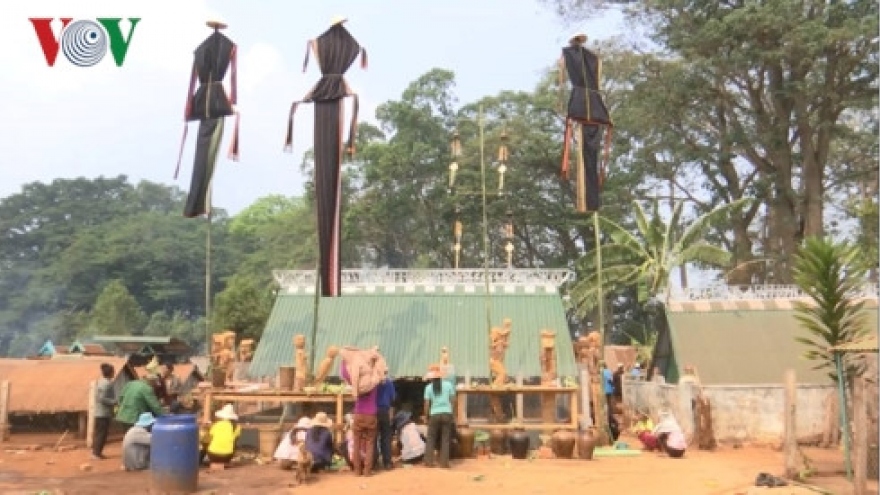
Jarai’s unique Po Thi funeral custom
VOV.VN - Po Thi, the Jarai custom of building a larger charnel house for a deceased person before seeing them off to the world of Gods, takes place between January and April each year.

Co Lao ethnic group
VOV.VN - The Co Lao, one of Vietnam’s 54 ethnic minority groups, has about 3,000 people. The group settled in Vietnam about 200 years ago and now lives mainly in the northern mountainous region.
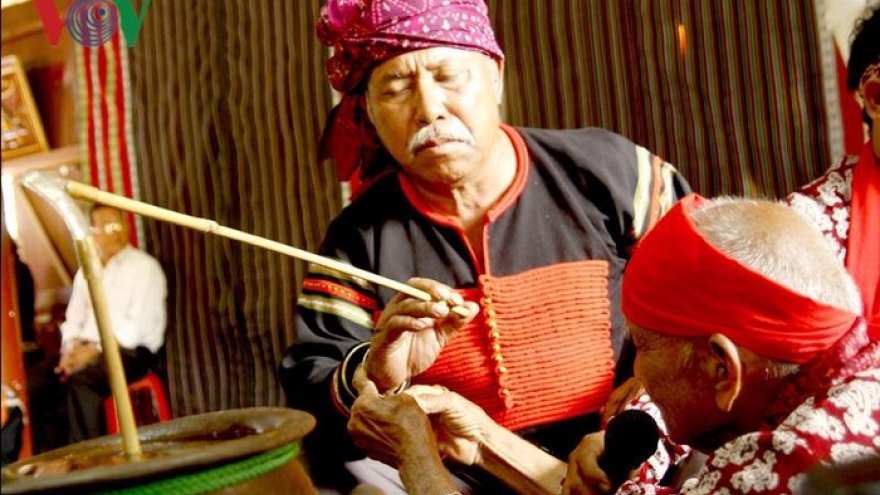
Water resource ceremony of the Ede
VOV.VN - The Ede ethnic minority people think that every water resource is managed by a genie. After each harvest and before each new crop, the Ede thank their water genies for blessing them with good weather and lots of luck. This shows their respect for water, the source of life.
